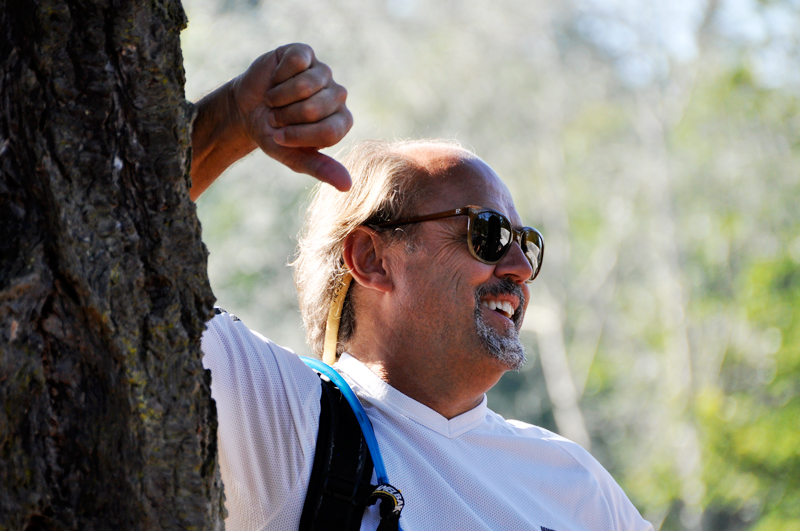Every year, the number of festivals in our area seems to increase, as does the attendance at many established fests that started as smaller grassroots affairs. If the crowd swells at Sasquatch, the Capitol Hill Block Party, and Bumbershoot aren’t your speed, than the scaled-down size and pace of the Doe Bay Fest feels like a downshift in the right direction.
Friday night has just begun to melt into Saturday morning on Orcas Island. Even after midnight, it still feels like it could easily be 80 degrees, but perhaps that’s because Doe Bay Resort owner Joe Brotherton and I have just exited the yoga studio that sits on his waterfront property’s postcard-perfect shore, and the temperature in there was undoubtedly in the triple digits. The space normally used to keep the resort’s visitors in limber repose was packed with attendees of the third annual Doe Bay Festival, who crowded in to catch the evening’s closing night set by the Head and the Heart.
A native of Seattle, Brotherton first visited the resort as a teen in the ’70s and fell in love with what he describes as an “old hippie place.” He and his wife Maureen purchased Doe Bay in 2003. The Brothertons aimed to upgrade the 33-acre property but keep its liberal spirit intact. It’s a clean, lovingly maintained space now, complete with its own organic garden, which provides much of the produce used in the onsite vegetarian cafe. Deer wander about the property, televisions are nowhere to be found, and for the third year in a row, an almost entirely volunteer-driven music festival thrives. It seems like a natural progression for a former bass player and music fan who caught plenty of legendary festival acts back in the day, including Jimi Hendrix, Janis Joplin, and Cream.
“We were sitting around the dinner table about four years ago talking about music, and the idea for a festival [on the property] came up,” recalls Brotherton, glancing at the sweaty revelers still spilling out of the yoga studio. “The first one, we didn’t know what we were doing. No permits, no anything. We kind of kept it a secret ’til about two weeks beforehand because I was afraid we were going to get shut down,” he laughs.
They didn’t get shut down. 250 people bought tickets to catch roots-rock artists the Maldives, Tim Seely, and Friday Mile. In 2009, word spread about the festival’s laid-back vibe and breathtaking natural setting. Proper permits were obtained, and esteemed artists including the Long Winters and Dave Bazan signed on. This year, the presence of Fruit Bats, Ravenna Woods, THEESatisfaction, and Grand Hallway helped ticket sales creep closer to the 800-capacity mark, selling out in just 10 days. Over the course of the weekend, that relaxed vibe lent itself nicely to spontaneous collaboration, with many artists jumping up to join one another during performances. Later on Friday night, members of the Maldives, along with confessional songstresses Kaylee Cole and Shenandoah Davis, gathered around a bonfire while Widower frontman Kevin Large led the group in a shambolic sing-along of Neil Young and Simon and Garfunkel covers.
Of course, something this idyllic-sounding and increasingly popular is bound to have its downside. Importing urbanites to the San Juan Islands during the high season means plenty of transportation issues, especially for bands who had no choice but to park their vans in the staggeringly long lines for the ferries. Many artists rolled in several hours later than expected, and Grand Archives missed their time slot altogether. Despite plenty of friendly advisements from the promoters to opt for the more efficient foot ferries, many attendees were stuck in delays that were causing the ferry schedule to run as much as six hours behind. The Fest is also something one has to carefully budget both time and money for: Driving onto a ferry will cost you close to $50, and the resort’s cabins and campsites book up lightning-quick.
Travel woes and frugality caveats aside, perhaps the most refreshing thing about Doe Bay was what was noticeably absent: corporate sponsorship and the garish preponderance of logos that typically accompany it. When Cole took the patio stage on Saturday morning with help from the Portland Cello Project, hanging behind her was nothing other than the image of the bay, framed by fir trees and lit by the sun.








